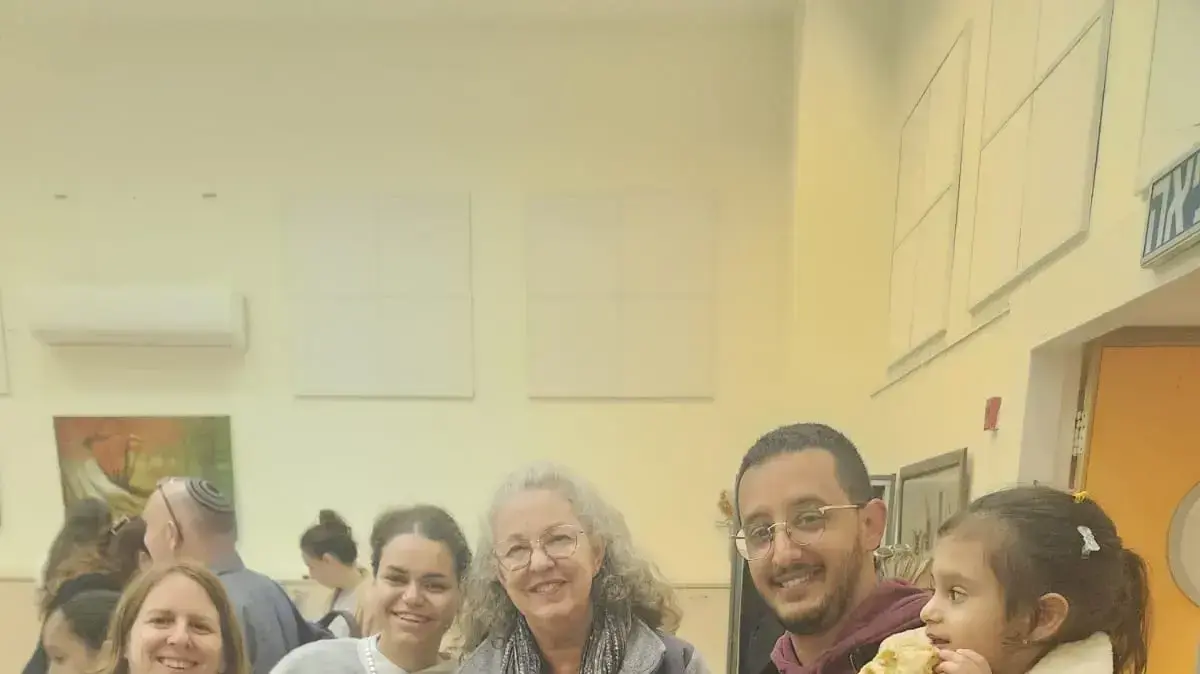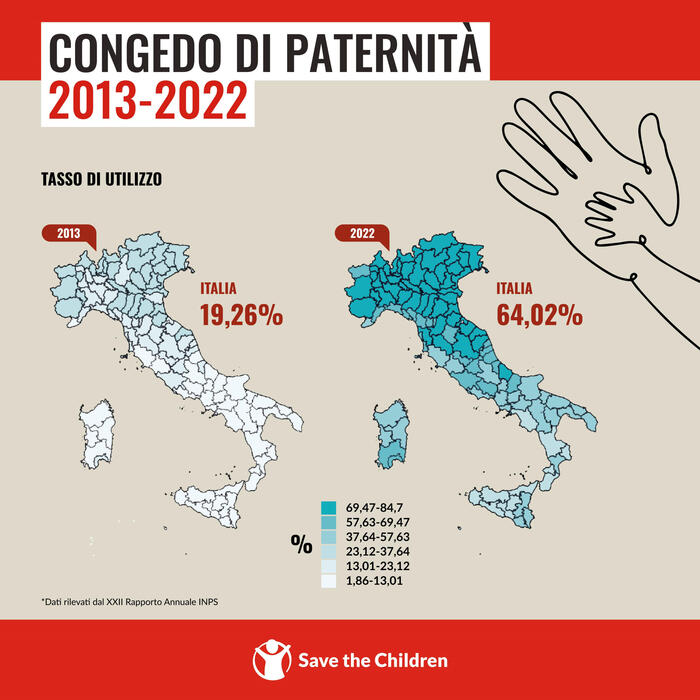Leni, 6, is a happy child. And on top of that very outgoing. When she goes shopping with her father, she greets the other customers in the store. She prefers to approach children and shake hands with them. To tell others 'hello' makes them happy. But for her greetings she often reaps derogatory looks. "That breaks my heart then," says her father.
Leni was born with a genetic defect. The examinations during pregnancy were unremarkable, the doctor had said, Engelmann and his wife thought their first child would be born healthy. The little daughter weighed 3450 grams and was squeamish. However, when the doctors voiced the suspicion of the so-called 5p syndrome, a new world collapsed for the new family. "From the moment when the words 'mental disability' fell, I could no longer follow the doctor's talk," says Engelmann on the phone.
With the worries alone at home
Apparently, Leni was a baby like any other. But when she cried, it sounded like a cat screaming. Therefore, the genetic defect that the girl will accompany for the rest of her life, experts call also cat cry syndrome or Cri du Chat. "We had never heard of it until then," says her father. Because it is initially only a suspicion, the doctors performed a blood test with the consent of the parents.
Engelmann and his wife lived in constant insecurity and concern for their child for almost a week. The worst thing for him was the evenings when he had to sit alone with his thoughts at home - while his wife and newborn remained in the clinic. "In those moments, I felt particularly helpless," reports Engelmann.
more on the subject
The diagnosis confirms the suspicion of the doctors. "That was a slap in the face," remembers Engelmann. It is estimated that one in 50,000 newborns is born with this disease, girls are more affected than boys. The cause is a genetic change in the chromosome pair 5. The children are mentally handicapped, they have a smaller head and their body is smaller and lighter than the peer.
Other worries, other pleasures
"If the child is torn from the norm by the disability, we fathers are suddenly all alone," says Engelmann. His voice falters. Society is still pushing women into the care role. Engelmann has been experiencing this ever since the diagnosis.
"The entire care system is designed for women," he complains. "You could see that in our daughter's kindergarten: all kindergarten teachers, every now and then an FSJ student." He and his wife take care of their daughter together, but when it comes to talking to specialists or therapists, Engelmann feels left alone as a father.
To his friends and acquaintances, who have children the same age as Leni, he still can not confide. "You can not understand my situation." That is a completely different world. "My buddies are worried about what career their children will do later or what their daughter's first boyfriend will look like," says Engelmann. His thoughts, however, revolve around the question of whether his daughter will be able to speak and live without diapers. He is much more concerned about whether Leni will someday get along without help.
"Daddy with disabled children"
Recently, the circle of colleagues revolves around Lego. Also Engelmann can not have a say. Although his daughter has already reached elementary school age, she still plays with wooden toys for two-year-olds. At such moments Engelmann feels the social pressure not to show weakness. "We usually get involved because we've been educated to do that," he says. "I have to be the strong pop."
But "Einigeln" was not a solution in the long run. Engelmann had to trust someone. Someone who knows his situation. He is looking for a long time. At a family retreat last February, a psychologist suggested that he network with other fathers. Engelmann founds a Facebook group.
Since March, the "daddy with disabled children" in the group of the same name exchange about all sorts of things. Without pity statements to endure. The topics range from nutrition to toys to European keys for disabled toilets. "You do not always have to explain yourself, and sometimes you can let off steam on care and everyday situations," he says.
more on the subject
For example, on the subject of therapy wheel. In May, Engelmanns had applied to the health insurance company for a reimbursement of the therapy wheel for Leni. A month later, a letter fluttered into the house - with a refusal. Because Leni is not able to operate the bike alone, the health insurance company refuses to cover the costs. "That is clearly discrimination", annoys Engelmann. The bike was finally meant for such cases. In addition, he and his wife Leni would never leave unattended - certainly not with a therapy wheel.
Staksige steps on short distances
A bike tour must first remain a wish. And what dreams are there? Silence in the pipe. One could almost think the connection would be interrupted. Then Engelmann says: "When I walk through the woods with her little sister, the big one has to stay at home. The worst part is that I know that she would enjoy a walk like this."
Nevertheless, Engelmann is proud of his daughter, he is not ashamed. "At most for the people who do not understand the problem." Leni has done more today than the doctors have credited her. She takes short stretches with staccato steps behind her. An obstacle for them are carpets. But she also overcomes them every now and then. "But only if she is distracted," says Engelmann. In order to communicate, she is currently learning the sign language. Engelmann hopes that she will soon use them in everyday life to communicate with others.
Love out loud
On an emotional level, his daughter could enrich him incredibly. If Leni is happy, then show it - quite naturally. "She laughs and is happy when she sees me, she hugs me quite often, in the evening she also cuddles with me," says Engelmann. "Many disabled children have a lot of love to forgive because they let their emotions run wild," he is convinced.
The father knows that it is unlikely that Leni will someday get along without help. Nevertheless, he wishes his daughter one thing above all: "A self-determined life."
Editor's note: In a previous version of the text, the risk that Leni was born with a disability was ambiguously formulated. We have replaced the sentence with the statement that there were no abnormalities during pregnancy.














